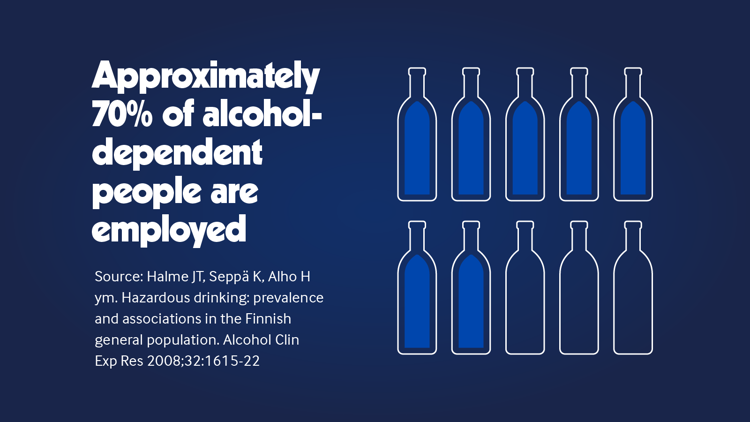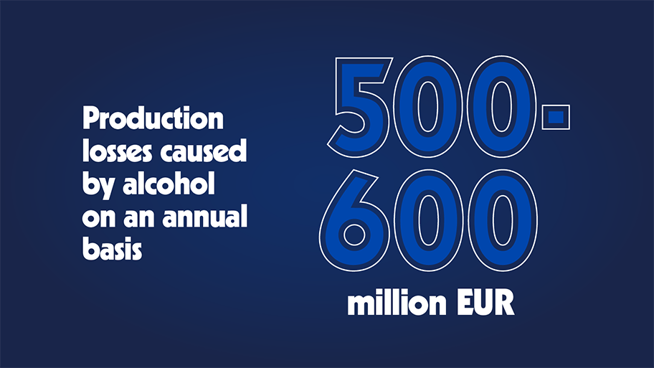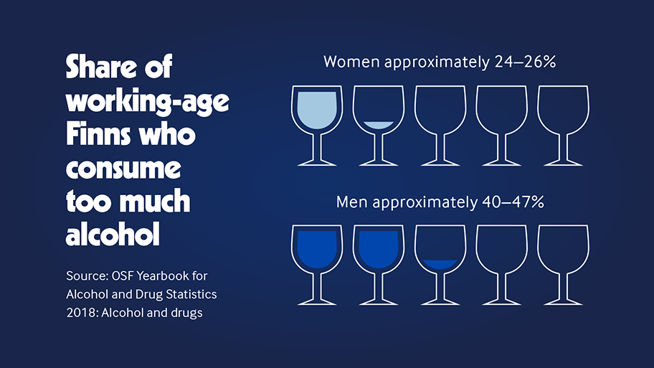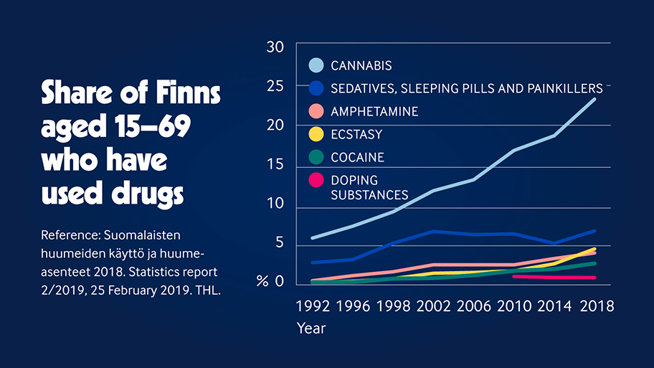
Substance abuse and working life
What is your organization’s cultural attitude toward the use of alcohol and other substances? Do HR and supervisors have the awareness and tools for early intervention and supporting the employee when a need for help arises? Use the Substance abuse checklist to identify and discuss the problem.

Substance abuse problems are relatively common. Various studies show that as many as about 50% of working-age men and about 25% of women consume too much alcohol. As many as 70% of those addicted to alcohol are employed. It is the employer’s responsibility to intervene if there is reason to suspect that an employee has a substance abuse problem that affects their work.
Intervention is important, not only for the well-being of the individual but also from an organizational point of view; heavy alcohol consumption increases sickness absences, contributes to the risk of disability retirement and unemployment and reduces the productivity of work.
Support for supervisors to identify substance abuse problems
Supervisors play a key role in identifying substance abuse problems. Our checklist helps supervisors identify substance abuse and gives them tools to address the issue. According to Sanna Eronen, Chief Occupational Health Psychologist at Terveystalo, it is respectful and caring to be open and direct about an issue. Even though speaking up is difficult, postponing the discussion poses a much greater risk.
A new model for the assessment and treatment of workplace substance abuse risks in occupational health

Tools to address substance abuse problems – Online coaching
Ensure that your company’s supervisors have the necessary information and tools to address workplace substance abuse problems at an early stage.
Terveystalo’s online coaching offers supervisors information and tools to identify and bring up substance abuse problems and take action at an early stage. The coaching is suited for supervisors of workplaces of all sizes and can be completed completely remotely when it best suits your schedule.
Latest articles

Organization culture can contribute to substance abuse problems
The use of substances is not a new phenomenon, as throughout the ages people have been intrigued by changing everyday reality with various chemical substances. Majority of the working-age population uses intoxicants, but mainly for controlled and moderate recreational use, which does not cause significant problems. On the other hand, certain factors in working life also increase the risk of substance abuse. In this case, the organization culture is important: does the culture support recovery with non-intoxicating means and encourages sensitive handling of deviations, or does it perhaps feed possible substance abuse problems.

Supervisors play a key role in identifying substance abuse problems
Alcohol is a legal intoxicant used by the majority of Finns. In principle, the employer does not have the right to interfere in the leisure activities of its staff, but in situations where the use of intoxicants during free time affects work, intervening is justified. It is the supervisors’ responsibility to not hesitate to ask questions if they are concerned about an employee's behavior. According to Sanna Eronen, Chief Occupational Health Psychologist at Terveystalo, it is respectful and caring to be open and direct about an issue, but intervening in another person’s behavior is something that most people prefer to avoid. Even though speaking up is difficult, postponing the discussion poses a much greater risk.

Addressing substance abuse problems in the working environment – the earlier, the better
Substance abuse problems are relatively common. Various studies show that as many as about 50% of working-age men and about 25% of women consume too much alcohol. As many as 70% of those addicted to alcohol are employed. It is the employer's responsibility to intervene if there is reason to suspect that an employee has a substance abuse problem that affects their work. Intervention is important, not only for the well-being of the individual but also from an organizational point of view; heavy alcohol consumption increases sickness absences, contributes to the risk of disability retirement and unemployment and reduces the productivity of work.
Download the free checklist
A checklist is useful when an employee is suspected of problematic substance use or other addiction affecting work ability. Learn to identify substance abuse problems in the work community with the help of a checklist. Subscribe it to your email.





